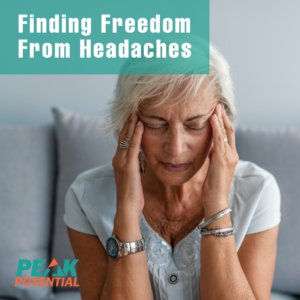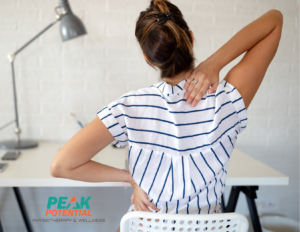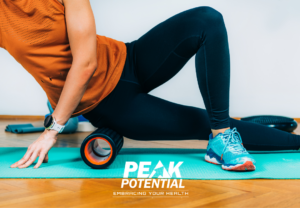
You may have trouble falling asleep or staying asleep if your hips, knees, back or shoulders ache due to arthritis, osteoporosis, or fibromyalgia. How do we know it’s a problem? Because we hear it from clients every single day.
The relationship between sleep and pain is complicated. Sore joints can keep you up at night, and lack of sleep can make you more sensitive to pain. In fact, up to 90% of adults with chronic joint pain are unable to sleep well, according to the Cleveland Clinic. It turns out to be a vicious cycle.
Even when you do drift off to sleep, you may be spending fewer hours in the deep stages of sleep that restore your body and mind. In turn, this lack of restorative sleep can contribute to further health issues, including obesity, diabetes, and heart conditions. If nothing else, you will be plagued with fatigue.
Fortunately, there are simple lifestyle changes that can help you to manage the discomfort and sleep more peacefully. Try these home remedies as you work with your healthcare provider to find relief.
-
Change Positions
Try sleeping on your unaffected side or change positions of your arms or legs. You don’t want your arms tucked underneath your head and most people are more comfortable with their knees drawn up a bit.
-
Support the Joint
In this side lying position, place a small pillow between your knees to take pressure off your hips. If you lie on your back, put a thin pillow under your knees to take support your low back. Putting a pillow under your armpit can help too if shoulder or neck pain are an issue.
-
Buy a New Mattress or Pillow
When it comes to mattresses, firm is usually preferable but find what feels best for you – not just when you first get in bed but when you wake up in the morning. You need something that will cushion your body and support your contours. Additionally, a pillow that is fitted for the size of your shoulders and neck is important for issues with the neck, upper back, and headaches. HERE is what we recommend.
-
Keep Good Sleep Hygiene
Darken your bedroom and block out distracting noises. Keep electronic devices out of your bedroom or turn them off at least 2 hours before retiring. These general sleep rules will help contribute to sounder sleep
-
Maintain a Consistent Schedule
As much as possible, go to bed and rise at the same time each day. Resist the urge to sleep in longer than about 30 minutes, even on weekends and holidays. When your body knows what to expect it is more likely to cooperate.
-
Get Out of Bed
If you can’t sleep, it may be better to get up for a few minutes and do something calming like reading a book until you’re sleepy again. However, keep lights dim so you aren’t more stimulated.
-
Limit Long Daytime Naps
Taking naps to fight daytime fatigue can backfire if they interfere with your falling asleep at bedtime. A short 20 minute rest, nap, or meditation can be beneficial, but longer than that will keep you from being tired enough at bed time to fall asleep.
-
Drink Responsibly
Although alcohol may make you feel drowsy, it actually interferes with sleep. You are more likely to wake up through the night and be unable to reach a deep level of sleep if you’ve had alcohol before bed.
-
Manage Your Weight
Carrying around excess pounds during the day creates more stress on your joints resulting in increased joint pain at the end of the day. Find strategies to improve your nutrition and movement to lose just a few pounds and you will start to feel the difference. If you need some guidance in this department (or have tried all the things and still don’t see success), inquire about our next Free Nutrition Workshop HERE.
-
Use a Sleep Aid with Relaxation Properties
Many over the counter sleep aides will knock you out, but interfere with your deep sleep. For years I took Tylenol PM or similar products when I was having a sleepless night and just woke up feeling groggy. A natural sleep aid like a low dose of Melatonin can be beneficial, but won’t help you much with physical discomfort. Adding ingredients like L-Theanine and 5HTP will help your whole body relax before bed so you are more comfortable as you fall asleep. HERE is the product we use.
Living with aching joints is challenging, but taking small steps each day will help you to manage your pain and develop habits that enhance your sleep. By taking control, you’ll enjoy more satisfying sleep and greater comfort around the clock.
When at home remedies aren’t working, or you just want to fast track your pain relief, a doctor of physical therapy can help you get the results you want. Whether your goal is reduced pain for better sleep, getting through your work day, or playing a full 18 holes of golf we have the tools to get you there. Click the link below to set up a Free Phone Consultation one of our joint specialists today.




